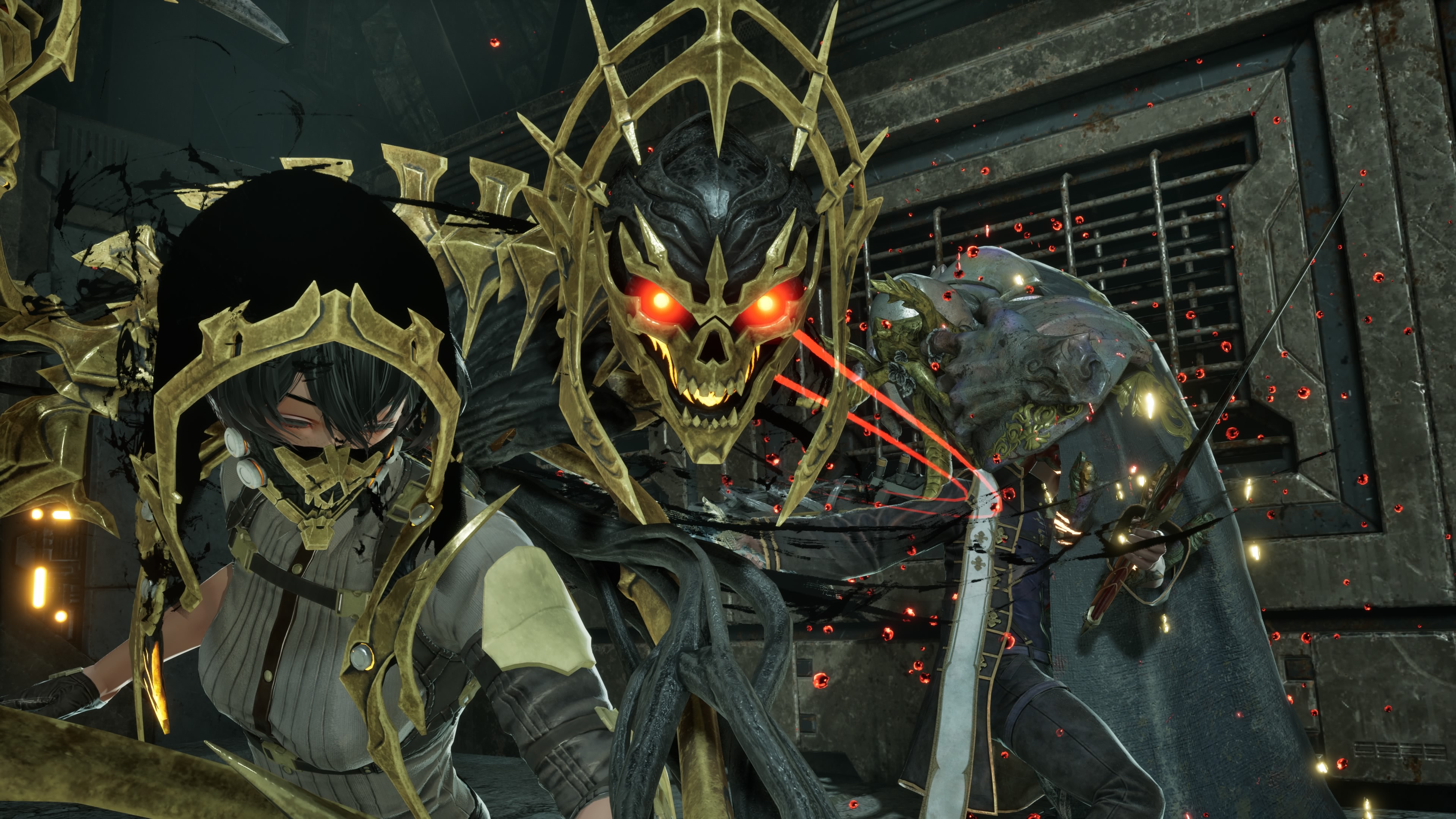Magic: The Gathering goes back to basics with Foundations: green decks go tall, monsters get bigger
A great way to introduce beginners, with plenty of appeal for returning players as well.
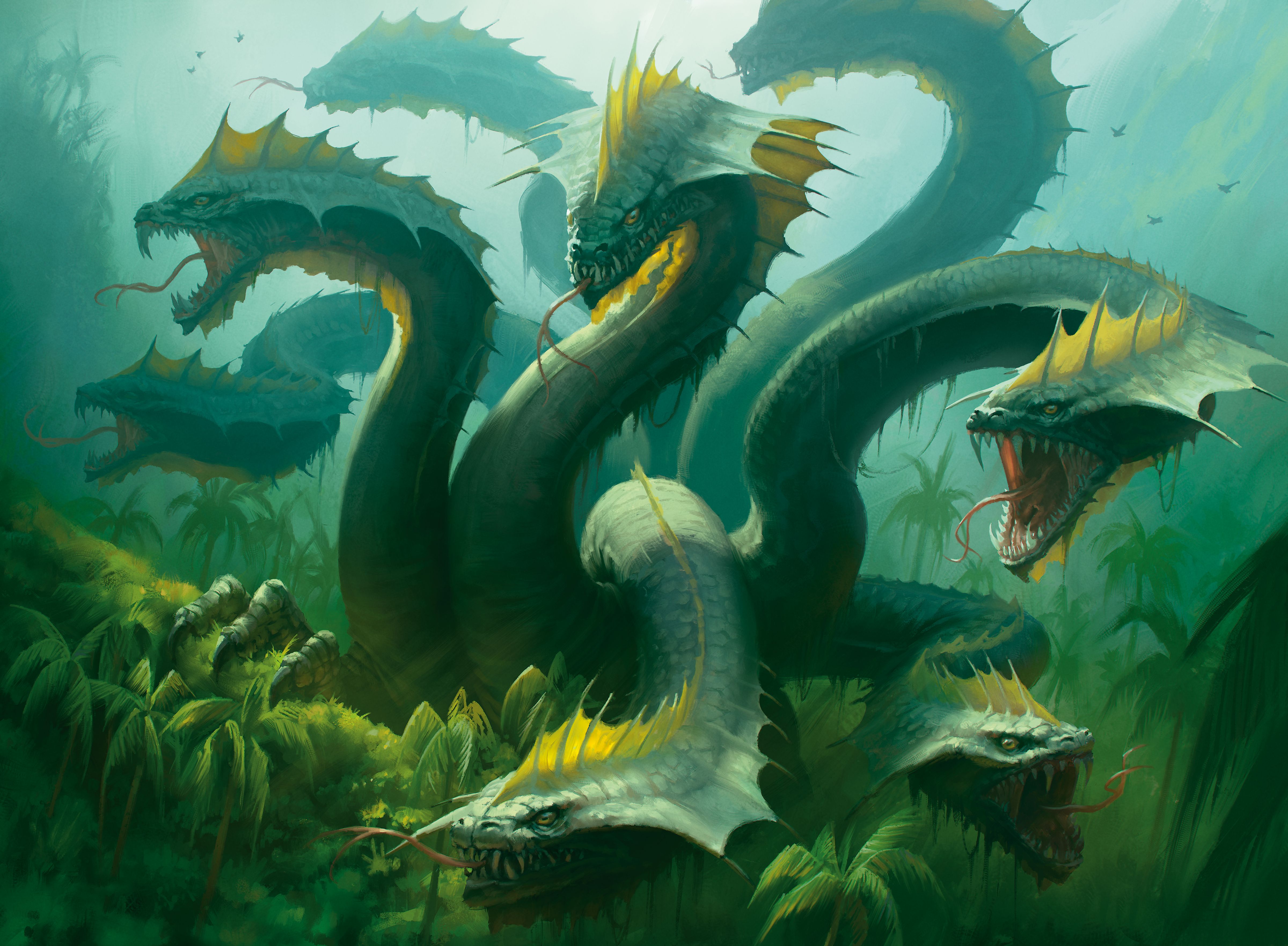
Magic's always been tough for beginners. The starter sets, cheaper boxes that give you two premade decks and a little rulebook, are the standard way in for a lot of players. Arena has a tutorial that was recently redesigned to be a smoother on-ramp. But the problem isn't learning how to play land and tap it to cast spells—it's where you go from there. The steps between learning the basic rules and learning the full suite of arcane keywords, the principles of deckbuilding, and the familiarity with typical cards you need to understand what's possible, is vast.
Which is where Foundations comes in. Rather than the kind of set that arrives, makes a splash, and then fades out, it's intended to be a long-lasting core that'll remain standard-legal at least through 2029, maybe further. A ground floor of cards that will be reprinted on the regular so they're always there on the shelf of your local gaming store to direct new players toward.
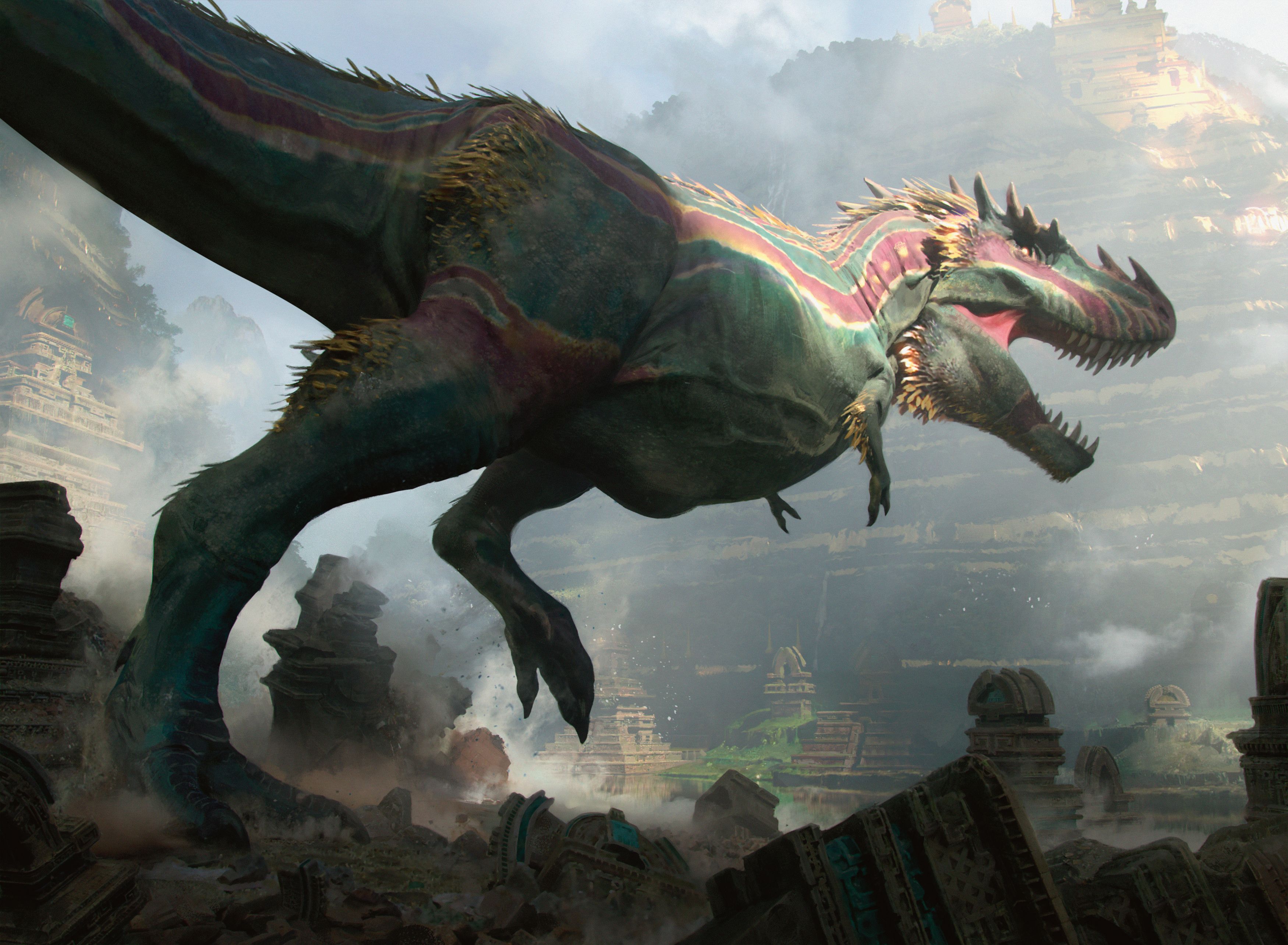
Half of the cards in Foundations will be reprints, many of them well-loved classics old heads will remember. Cards like Shivan Dragon and Serra Angel, which have been around since the earliest days of Magic, but plenty from this century as well. Like the two green cards below: Wildwood Scourge, from the 2021 Core Set, and Ghalta, Primal Hunger, one of five rare elder dinosaurs from 2018's Rivals of Ixalan expansion.
The classic mono-green strategy is going tall. You bring out as many forests as you can, pumping up the mana until you can play one of your big guns like Gigantosaurus (which is also coming back in Foundations). Ghalta, Primal Hunger, is a perfect example—a 12/12 who, like a lot of green-deck big guns, has trample. He also costs less if you control other creatures, so those Llanowar Elves you summoned while you were waiting to play Ghalta get to feel like they're still contributing. (Llanowar Elves are also coming back in Foundations.)
Wildwood Scourge has a power and toughness that scale based on how much mana you spent to cast it, which gives you the option of playing it on turn two. If you do it'll be a 0/0, unable to attack or defend, but its stats go up by one each time you put a +1/+1 counter on a creature that isn't a hydra. Assuming your opponent doesn't stop it, the Wildwood Scourge can build to become a powerful threat, but if you don't draw Ghalta, Primal Hunter you can bide your time to drop 12 mana on Wildwood Scourge instead and have it as your ultimate beast.
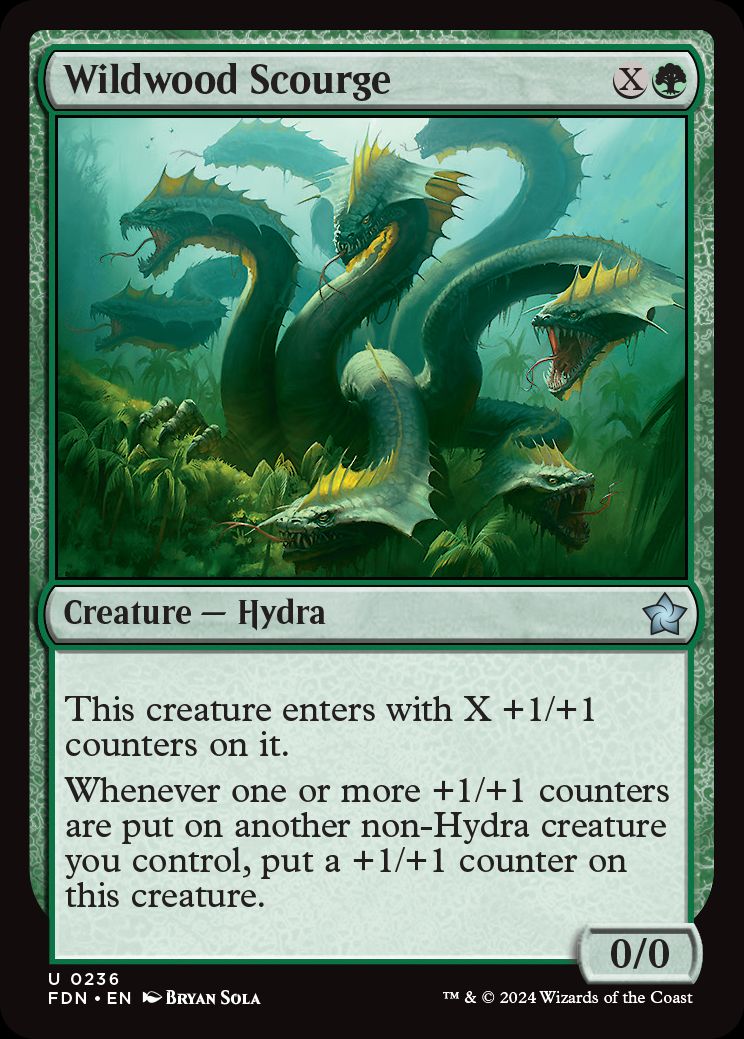
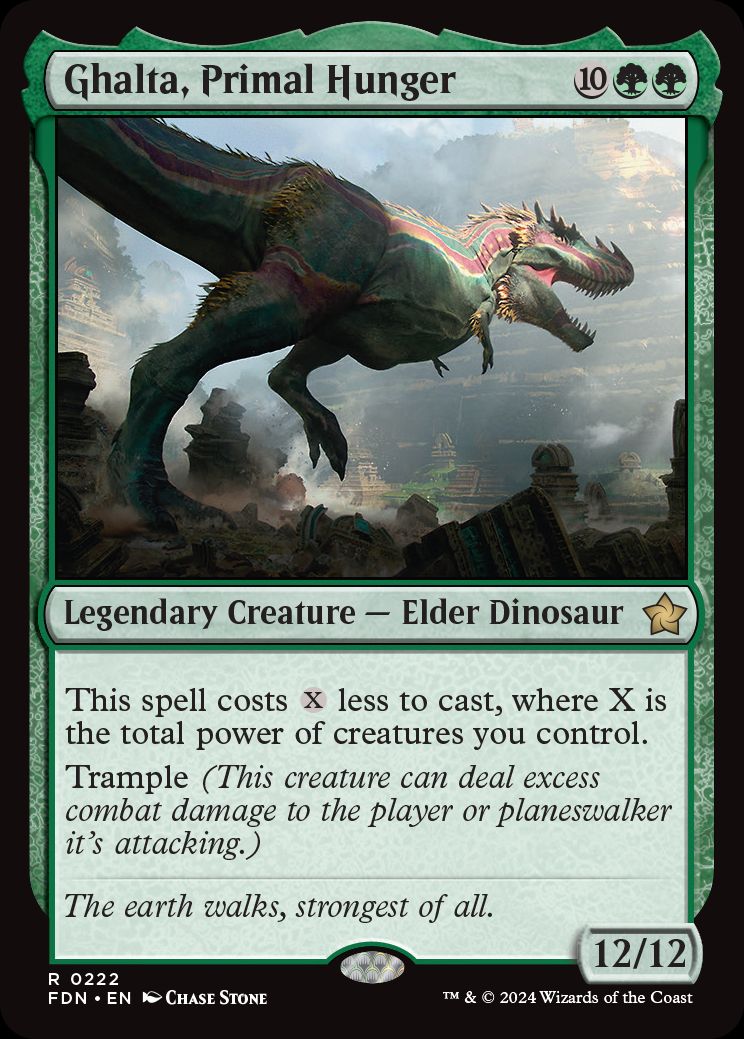
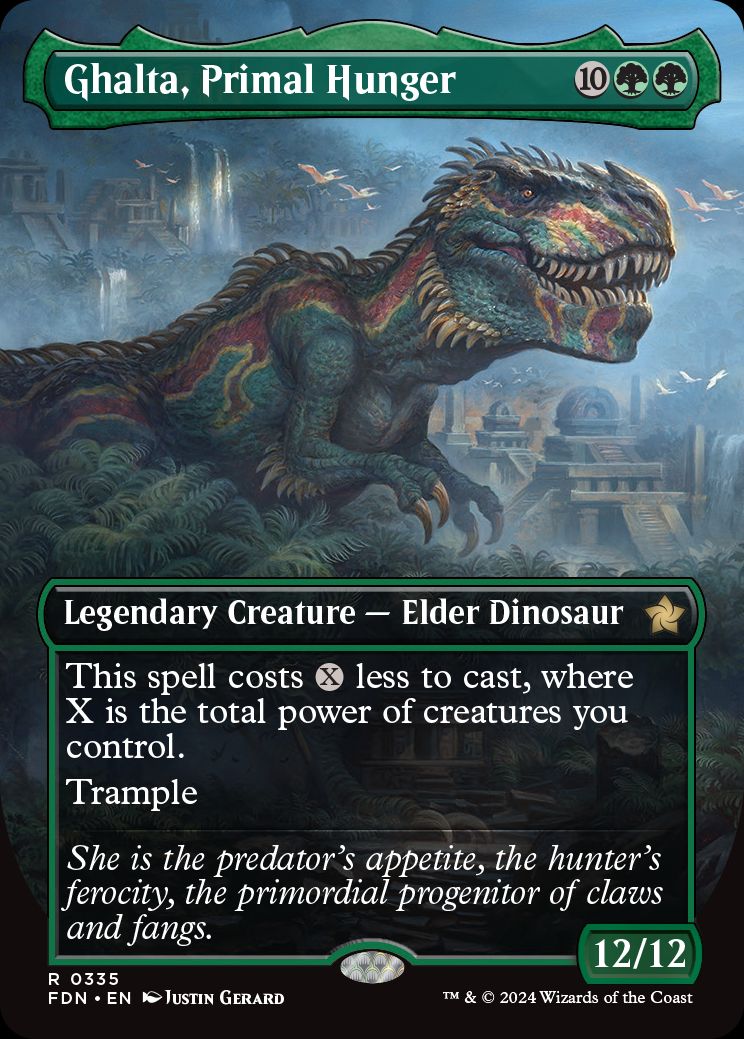
These are the kind of classic strategies everything else in Magic: The Gathering is built on. The speedy red aggro deck full of goblins, the slow blue deck full of counterspells, the black deck that pulls cards out of the graveyard and the white deck that overwhelms you with flying angels and also lions for some reason. These are the building blocks of Magic, and having a set that plays to those strengths, and the combinations when you start building multi-color decks, will give me a way of introducing new players to Magic beyond just handing them a Lord of the Rings starter set. Which is nice.
And it's also appealing as someone who already learned this stuff the hard way (from videogames), because I've always wanted a paper deck that had ye olde cards like Savannah Lions in it. Foundations will be playable at pre-release events at your local gaming store from November 8, will be available digitally in Arena on November 12, and will be available in paper Magic from November 15.
Keep up to date with the most important stories and the best deals, as picked by the PC Gamer team.
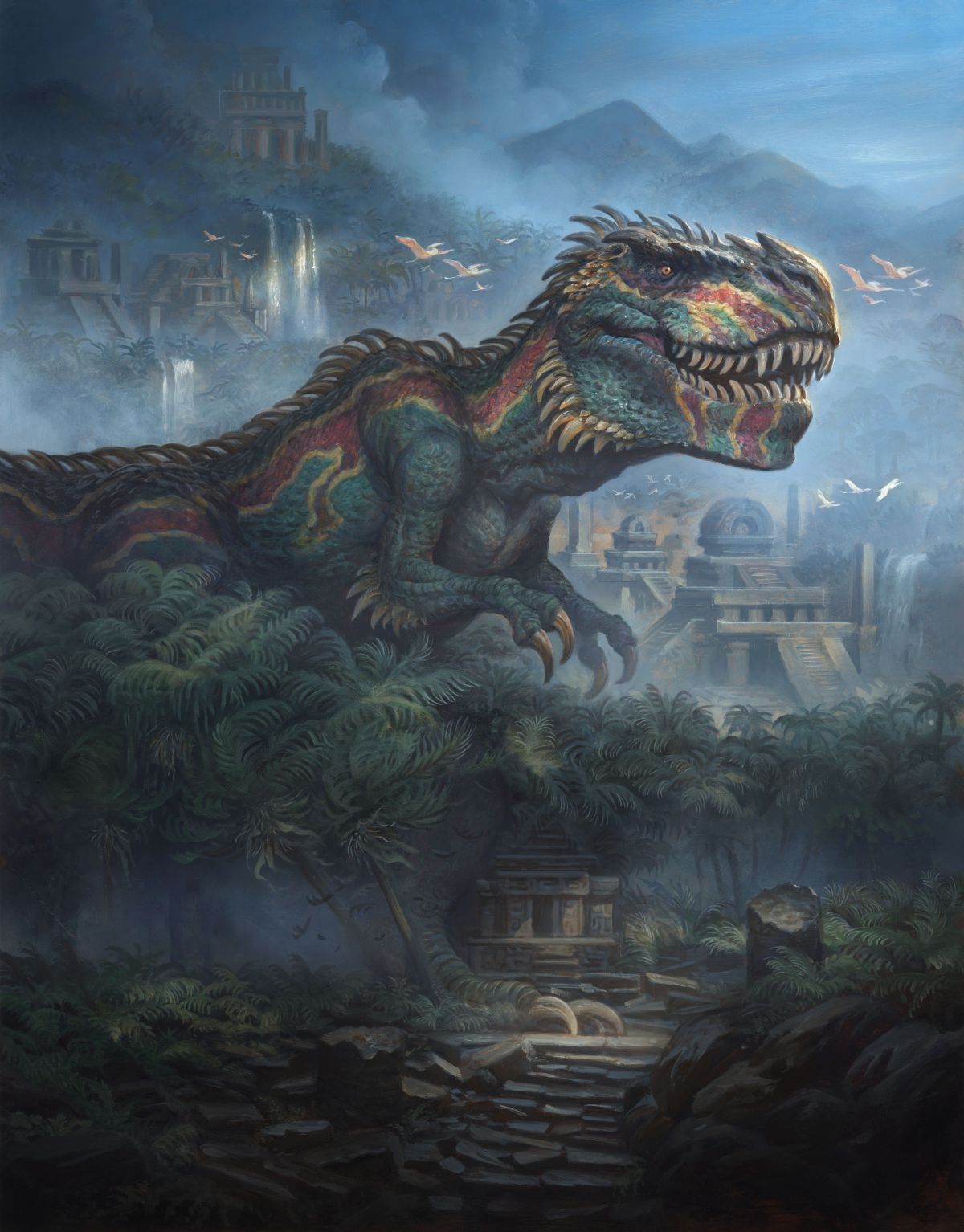

Jody's first computer was a Commodore 64, so he remembers having to use a code wheel to play Pool of Radiance. A former music journalist who interviewed everyone from Giorgio Moroder to Trent Reznor, Jody also co-hosted Australia's first radio show about videogames, Zed Games. He's written for Rock Paper Shotgun, The Big Issue, GamesRadar, Zam, Glixel, Five Out of Ten Magazine, and Playboy.com, whose cheques with the bunny logo made for fun conversations at the bank. Jody's first article for PC Gamer was about the audio of Alien Isolation, published in 2015, and since then he's written about why Silent Hill belongs on PC, why Recettear: An Item Shop's Tale is the best fantasy shopkeeper tycoon game, and how weird Lost Ark can get. Jody edited PC Gamer Indie from 2017 to 2018, and he eventually lived up to his promise to play every Warhammer videogame.

